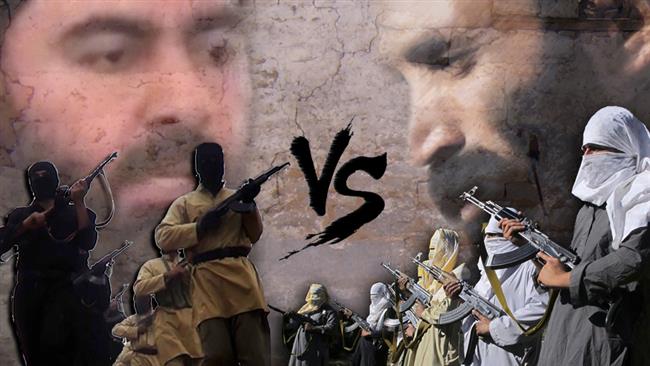The so-called ’Islamic State of Iraq and the Levant’ (ISIL) takfiri group is making inroads in Afghanistan, winning over a growing number of sympathizers and recruiting followers in 25 of the country’s 34 provinces.
 The so-called 'Islamic State of Iraq and the Levant' (ISIL) takfiri group is making inroads in Afghanistan, winning over a growing number of sympathizers and recruiting followers in 25 of the country's 34 provinces, a UN report said Friday.
The so-called 'Islamic State of Iraq and the Levant' (ISIL) takfiri group is making inroads in Afghanistan, winning over a growing number of sympathizers and recruiting followers in 25 of the country's 34 provinces, a UN report said Friday.
The takfiri group, which occupies areas of Syria and Iraq, has been trying to establish itself in Afghanistan.
Afghan security forces told UN sanctions monitors that about 10 percent of the Taliban insurgency are IS sympathizers, according to the report by the UN's Al-Qaeda monitoring team.
"The number of groups and individuals who are openly declaring either loyalty to or sympathy with ISIL continues to grow in a number of provinces in Afghanistan," said the report.
Afghan government sources said "sightings of the groups with some form of ISIL branding" or sympathy were reported in 25 provinces in the war-torn country, it added.
The ISIL-backed groups "regularly engage" Afghan military forces, but fighting with other parts of the insurgency are rare, except in Nangarhar province where they are battling the Taliban for control of the drug trade.
Among the prominent ISIL fighters, the report singled out Abdul Rauf Khadem, a former Taliban adviser to Mullah Omar, who visited Iraq in October 2014 and has since formed his own group in Helmand and Farah provinces.
Khadem allegedly has been recruiting followers by paying out large sums of money.
Foreign fighters from Pakistan and Uzbekistan, some of whom have close ties to Al-Qaeda, have come under the IS banner after fleeing their country and have "rebranded themselves" in recent months, the report said.
Up to 70 ISIL operatives have come from Iraq and Syria and now form the core of the terrorists' branch in Afghanistan, according to the report.
Afghan security authorities do not consider the growing emergence of ISIL as an "immediate increased threat" but they are keeping an eye on the situation as a "potential new threat", it added.
The UN monitoring team said ISIL had improved its propaganda in English in a sign of increased competition with the Taliban.
